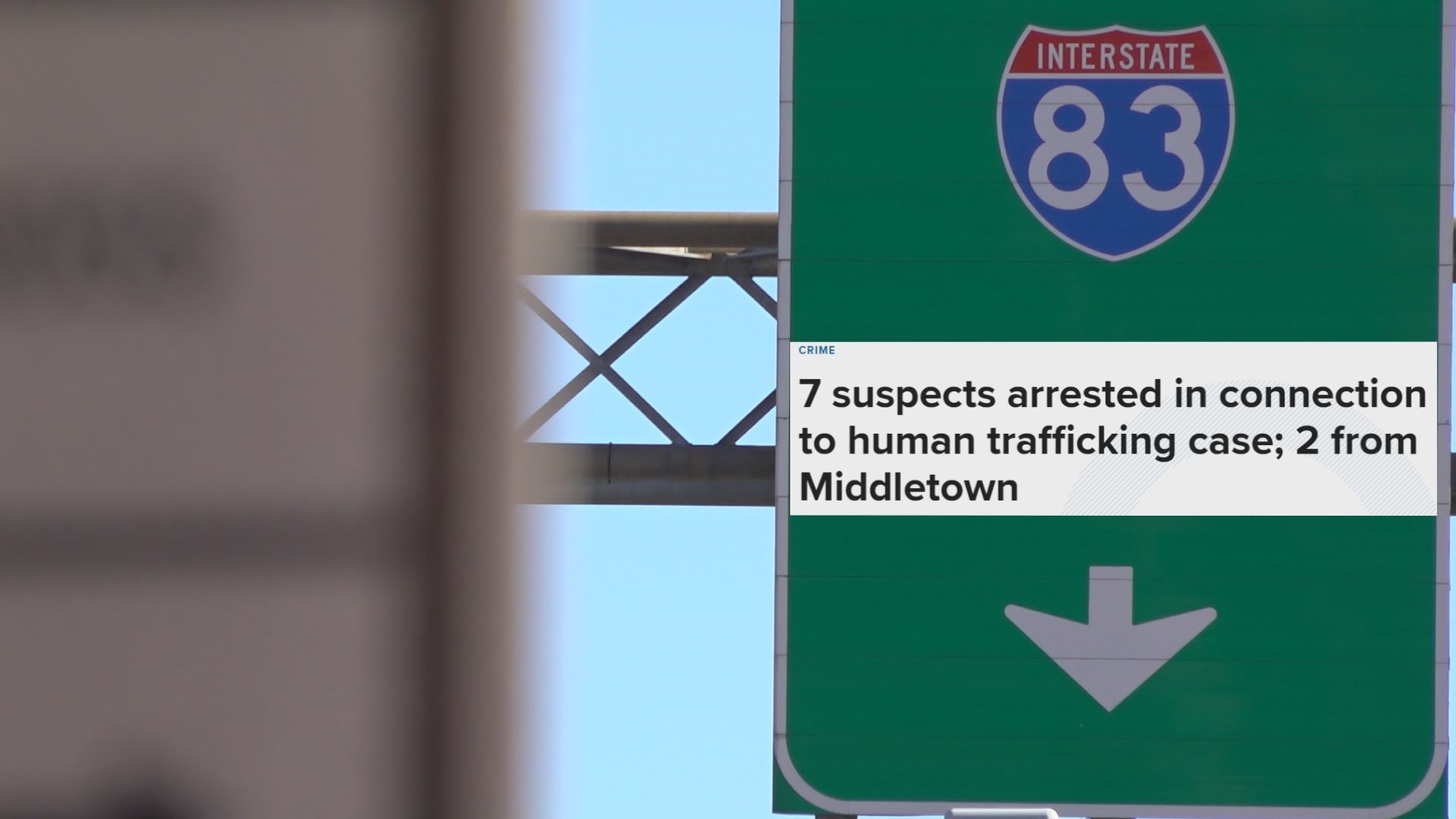YORK COUNTY, Pa. — Every so often, big arrests in cases make our local headlines as law enforcement agencies crack down on human trafficking in central Pennsylvania.
However, human trafficking is a more frequent and urgent problem than portrayed in the media.
"I think everybody wants to believe what they see on TV, these big sting operations where you bust these things," York County Chief Deputy District Attorney Erin Kraska said. "Do they happen? Absolutely. Is that the most common way that law enforcement comes into contact with victims of human trafficking? Absolutely not."
The reality is an invisible collection of agencies and organizations that work together, such as the ones that make up York County’s Human Trafficking Task Force.
"York County Human Trafficking Task Force is a holistic approach that is comprised of different agencies, such as law-enforcement, mental health, medical recovery service providers in the criminal justice system," YWCA York Human Trafficking Advocate Jessica Hummel said. "We can all come together, and let York county know the dangers of trafficking and how to fight the battle if you will."
Each member of the task force plays a different role to give a wide range of solutions to the complex issue.
"What of our task force partners can we activate to help this person whether it's drug and alcohol, mental health?" Kraska said. "How can we get this person's services that may help them?"
Once a direction is identified, Hummel says the Task Force can adjust if needed.
"It really just depends on what arena and what stage that our client is in, or our victim or survivor, whatever [they] need," Hummel said." That changes daily. They can change hourly from what they need."
Aside from Local Task forces, state agencies such as PennDOT and the Office of Victim Advocate are also working to bring public awareness.
"Transportation is, you know, how victims get moved around on our transportation networks," PennDOT Press Secretary Alexis Campbell, said. "Transportation agencies, and D. O T.’s are in a really unique position to be able to try to help."
Teaching employees working directly with the public on how to spot red flags is just one simple way of addressing the problem.
"We've trained our frontline staff at the driver license centers to spot signs of potential trafficking," Campbell said. "It's part of the onboarding process for new staff, and all of our existing staff have been trained as well."
PennDOT is also finding ways to inform the public. This includes sharing information at places that see constant foot traffic, like services plazas on the Pennsylvania Turnpike.
"The more that we can help make sure people know what to look for potentially, then the more likely it is to help make a difference in and help somebody out if they need help," Campbell said.
Other campaigns, such as the PA Office of Victim Advocate’s awareness launch in 2022, are signs of Task Forces working with state and local agencies to expand public awareness.
"I think the biggest part of what we try to do is collaborate," Commonwealth Victim Advocate Suzanne Estrella said. "There are many people involved in Pennsylvania that want to see the stop, and that's great because it is gonna take all of us as a community."
"This is why our task force is created," Hummel said. "We just really want to let the community know the dangers, what to look for."
Estrella emphasizes the importance of exposing communities to the reality of human trafficking and its impacts.
"It's important that we bring this to the forefront and bring this to the table in Pennsylvania because it's happening to our children, it's happening to our sisters and our brothers," Estrella said. "That's what makes it so valuable. Whether it's one or 10,000, it shouldn't be happening.”
Kraska says the task force and other localized efforts are having a positive effect, even if it doesn't always make the front page of the paper.
"I think if we take successful prosecution as the only measurement of our success as a task force, we are short-citing ourselves one of the great things that we're doing to help victims and get victims of services that they need that may not necessarily end in that result," Kraska said.

